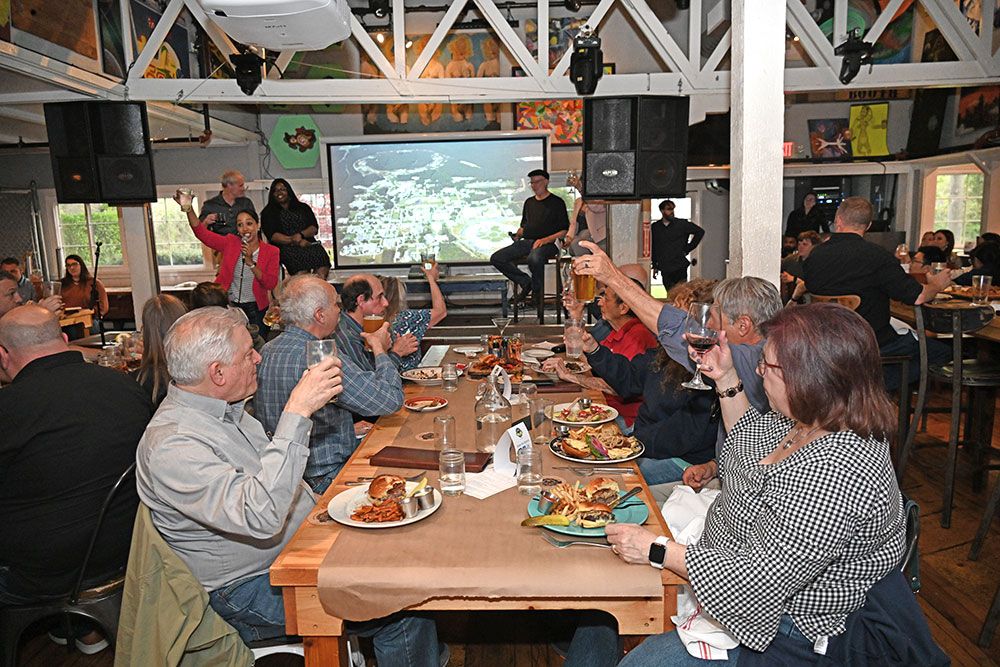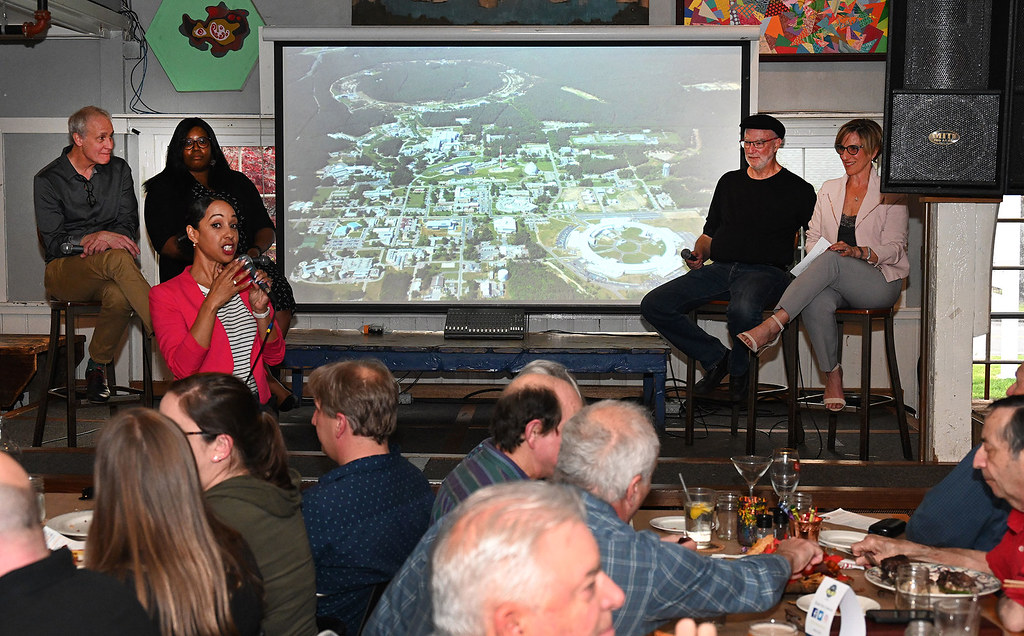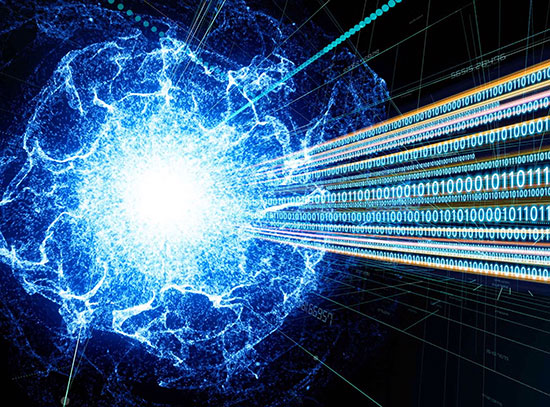PubSci Explores the Burning Questions of How Wildfires Connect to Climate
Brookhaven Lab's science café and conversation series returns with a hot topic after pandemic hiatus
May 23, 2023
The U.S. Department of Energy’s (DOE) Brookhaven National Laboratory brought its “PubSci” science café and conversation series back to the public with a packed house at Painters’ Restaurant in Brookhaven the evening of May 10, 2023. This was the 14th installment of a program designed to bring Brookhaven scientists and their collaborators to local bars and restaurants to discuss the Lab’s research in a casual environment, but the first after a three-year, pandemic-imposed hiatus.
By all accounts, the crowd was happy to have the series back. Some 100 attendees, a mix of PubSci “veterans” and first-timers, came to Painters’ to discuss a hot (pun intended) topic: “Burning Questions: Do Wildfires Fuel Climate Change?” A team of three Brookhaven Lab environmental and atmospheric scientists described their rationale for flying through wildfire plumes so dense that the skies turned orange, as well as efforts to create soot-seeded clouds in the laboratory. Their goal: to collect data needed to reduce the uncertainties in the models that predict the impacts of soot from fires and other atmospheric particles known as aerosols on Earth’s climate.
“It was a lot of fun to participate in PubSci. The audience had great questions and it was fun to talk with them,” said Brookhaven Lab atmospheric scientist Ernie Lewis. With the aid of simple graphics and photos, Lewis helped the audience understand Earth’s energy balance—how sunlight reaches us or gets absorbed or reflected by clouds and how much energy escapes back into space. He also described how natural and human-driven sources of atmospheric aerosols can seed the formation of clouds and affect that balance.
Hover over image to reveal slideshow controls.
Art Sedlacek, one of the Lab’s intrepid smoke samplers and an atmospheric chemist, described the harrowing flights aboard an instrument-packed turboprop plane and the tools used to analyze the numbers, types, and chemistry of particles emitted by fires. Dramatic video and maps showed the enormous size and widespread impact of wildfires, making it clear that these particles can affect areas far from the burning—and why it’s so important to have good data to feed into climate models.
And Ogo Enekwizu, a postdoctoral fellow who works with both Ernie and Art, displayed her bottle of liquid soot and described how she uses a series of instruments to transform that soot into cloud droplets in the laboratory. By changing the chemistry of the coatings surrounding these surrogate soot particles, she can mimic the effects of the organic matter that gloms onto the soot from burning biomass, and explore how those changes affect the particles’ ability to form clouds and interact with light.
“It was an awesome experience,” Enekwizu said. “I enjoyed interacting with the audience during and after the event.”
Comments on surveys from attendees expressed enthusiasm: “Great event!” “Everyone was engaged.” “A great way to enjoy science!”
Questions included a desire to understand the impact of far-off fires on our local environment, with the scientists noting that equipment at Brookhaven had picked up particles from fires burning in Canada and even from as far away as California.
In response to a question about how such data could impact policies related to climate, the scientists pointed out that their data provide crucial input to the models used to make predictions. “The models are only as good as the data you feed into them,” Sedlacek said. More accurate models could help drive better-informed policy decisions.
They also pointed out how previous Brookhaven Lab studies focused on sampling the chemicals that drive the formation of acid rain had ultimately led to policy decisions that reduced atmospheric concentrations of those chemicals. “You used to be able to see the smog to know where to go to sample it,” Sedlacek said. “Now, only highly sensitive instrumentation can ‘see’ the smog around certain cities.”
Since 2014, PubSci has offered the public a chance to see a more casual side of the cutting-edge research happening every day at Brookhaven Lab, and chat with scientists over a drink. The series hops around Long Island, covering different topics from the Big Bang to tomorrow’s technologies. Stay tuned for an announcement on the next PubSci!
Brookhaven National Laboratory is supported by the Office of Science of the U.S. Department of Energy. The Office of Science is the single largest supporter of basic research in the physical sciences in the United States and is working to address some of the most pressing challenges of our time. For more information, visit science.energy.gov.
Follow @BrookhavenLab on Twitter or find us on Facebook.
2023-21282 | INT/EXT | Newsroom











